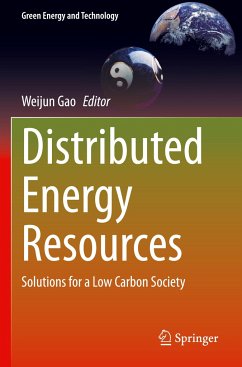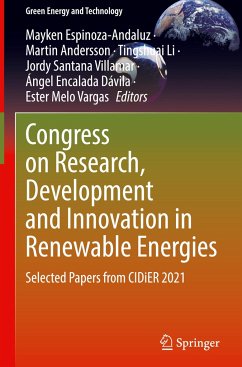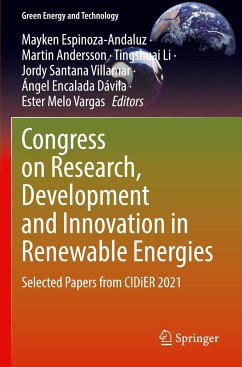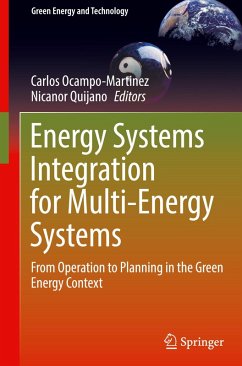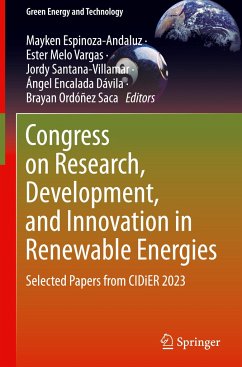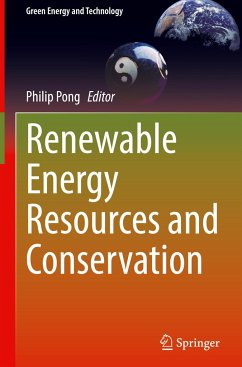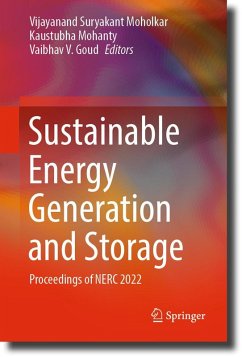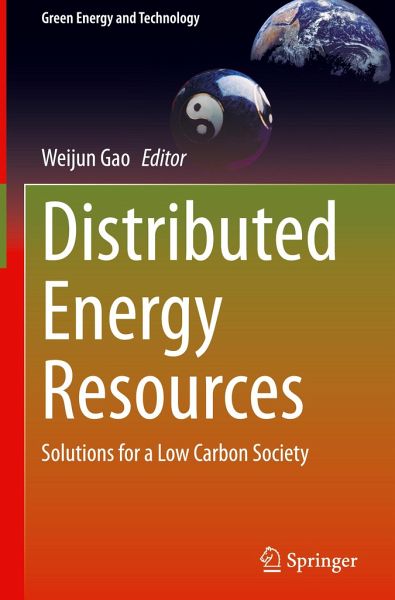
Distributed Energy Resources
Solutions for a Low Carbon Society
Herausgegeben: Gao, Weijun

PAYBACK Punkte
49 °P sammeln!
The future of the distributed energy generation market is promising, with opportunities in the residential, commercial, and industrial sectors driven by increasing awareness of clean energy, greenhouse gas (GHG) emission reduction targets, and rising global demand for energy. This book focuses on UN Sustainable Development Goal 7, which aims to "ensure access to affordable, reliable, sustainable, and modern energy for all." It provides research results, applications, and case studies on the potential of distributed energy resources as a solution to building a low-carbon society. Coverage inclu...
The future of the distributed energy generation market is promising, with opportunities in the residential, commercial, and industrial sectors driven by increasing awareness of clean energy, greenhouse gas (GHG) emission reduction targets, and rising global demand for energy. This book focuses on UN Sustainable Development Goal 7, which aims to "ensure access to affordable, reliable, sustainable, and modern energy for all." It provides research results, applications, and case studies on the potential of distributed energy resources as a solution to building a low-carbon society. Coverage includes modeling and evaluation of distributed power systems, system maintenance and reliability, economic potential and implications of hydrogen energy systems, grid stabilization and carbon emission reduction, smart design, and the impact of energy penetration on public power grids. Case studies include the effects of renewable energy policies on solar photovoltaic energy in China, Germany, Japan, and the United States of America and a feasibility assessment of distributed energy systems in Shanghai.
Distributed Energy Resources: Solutions for a Low Carbon Society will be a valuable resource for postgraduate students and researchers in energy systems, urban energy management, and renewable energy technologies and a reference guide for practicing engineers, urban energy planners, and energy system managers.
Distributed Energy Resources: Solutions for a Low Carbon Society will be a valuable resource for postgraduate students and researchers in energy systems, urban energy management, and renewable energy technologies and a reference guide for practicing engineers, urban energy planners, and energy system managers.



